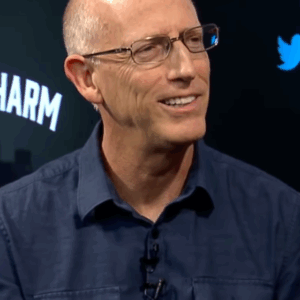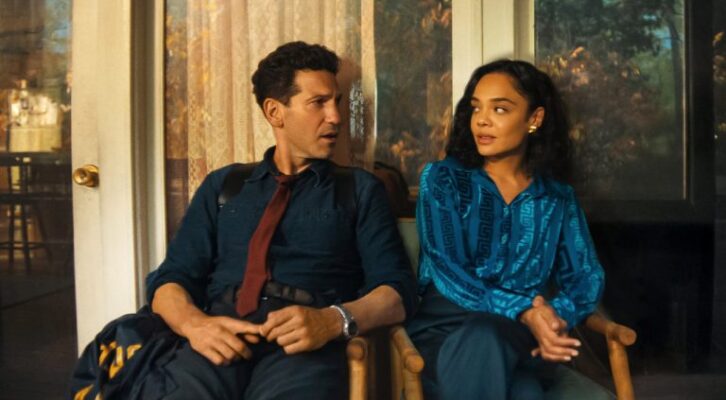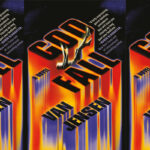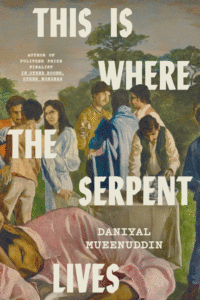
Robert Bresson: 'I'm not a director. I am a filmmaker.'
Bresson and François-Régis Bastide in Conversation
The following is from Bresson on Bresson: Interviews, 1943-1983.
François-Régis Bastide: Robert Bresson, opening your book almost at random, I landed on this sentence, spoken by Racine to his son Louis: “I know your handwriting well enough, without your having to sign your name.” I would like to say that if I had come across this book without the author’s name (which never happens, though it would be interesting) and with only the title Notes on the Cinematograph, published by Gallimard, if the name Robert Bresson didn’t appear on the cover at all, I believe that I—and not only I, but hundreds, even thousands of readers—would have guessed right away that it was yours. It’s a brief, dense book, composed of short sentences, written for the most part in a telegraphic style, in which you address either yourself or someone else. You seem to be speaking to some sort of Nathanaël who might be you (even if you, perhaps, dislike Gide). You strip your art naked with the utmost rigor, and thumb your nose at the reproaches that have continued to be made against you throughout your long career. On the contrary, you persevere, you double down. I wonder if you’re thinking of Cocteau’s dictum: “Whatever the audience hates, cultivate it: it’s who you are.” And yet, you never miss a chance to explain who you are, what you are. Sorry, not who you are. Not in an anecdotal way, of course. You never take on the complaisant tone of a director: “I remember when I was shooting this or that film, my DP came up to me and said . . .” No. Don’t expect that from Robert Bresson. This is the book of a cinéaste who says what he thinks—as dryly as possible, but with fire, too. So that with each sentence, with each of these little paragraphs, one wants, of course, to know more, to have you nearby so as to be able to ask: “Is this what you mean?” So I have that now—you are here—and all I can do, of course, is ask a few small questions pertaining to some of your sentences. For example, there is one thing that surprised me quite a bit. I believed—but this is part of your legend (it may be false)— that you never go to the cinema. But often, in the book, you write about a “film by X.”
Robert Bresson: I began writing these notes 20 years ago. At that time, I still went to see films. Now I don’t go any more. I’ll tell you why: I don’t go, as I say in the book, because I can’t abide these actors who—in close-ups that reveal every detail—are there only to provide mimicry and theatrical gestures. And this feeling has grown even stronger—something has changed and I simply can’t do it, I can’t bear to see it or hear it.
F-RB: You have gone straight to the heart of the matter. In effect, there are many notes in your book about the voice: “natural voice,” “trained voice.” The voice: the soul made flesh. When it’s studied, as it is in X’s films, it has neither soul nor flesh.
RB: I place immense importance on the voice, on timbre, on the matte or brilliant quality of the voice, and above all on a natural voice—that is, a voice that has never been trained, that expresses itself through rhythm alone, through increases and decreases in speed—in other words, as Baroncelli said the other day, “a voice from behind the mask.” Because I believe—at least for what I’m trying to understand about myself and about a kind of cinematography that’s not just a photographic copy of art—I really believe that neither the gestures nor the speech that form the substance of a theatrical play can form the substance of a film. And for me, the substance of a film is this thing or these things that are provoked by speech or gestures. That’s not the way they function in the theater. So the function is different: It’s about what is provoked by these gestures and intonations and voices, which is captured, as if from the interior, by the camera and audio recorder.
F-RB: The two machines that you love so much and talk about so often.
RB: And which I say are sublime.
F-RB: It seemed to me that when you say “To display feelings through facial expressions and gestures is the art of the actor, is theater. Not to display feelings through facial expressions and gestures still isn’t cinematography. Involuntarily expressive (and not willfully inexpressive) models . . .”—that that may be a kind of key to your thinking.
RB: Yes, I call my non-actors “models,” like a painter or sculptor calls those who pose for him his “models.” But I eliminate the pose—because I don’t want them to pose. I want them to be intact, virgin. What I want from them is the unknown.
F-RB: In the beginning, you did direct actors.
RB: That’s why I’m telling you that everything I say here was, fundamentally and powerfully, in me from the moment I started making films—but there is nothing a priori about any of it. What I mean is that it was only after three or four films that I felt the absolute necessity—not that I realized it myself; I started using these models for my own purposes—the necessity of going in this direction and not in the usual direction of theater—and it’s why I became less and less able to work with professionals. When I made my first film, The Angels of Sin, I didn’t know my actors; I let my producer choose them. All I did was switch two roles, Sylvie and Marie-Hélène Dasté.
F-RB: And you could tell right away that it would be difficult?
RB: That it wasn’t working well, yes. I said the same thing to them. They cried every night. But they were very sweet, because they knew I was right. And I also thought I was right.
F-RB: So you have sensed from the beginning of your career that you wouldn’t be able to . . . ?
RB: Yes, but I didn’t know exactly why, and I could not have imagined that it would end up being the voice that would bother me above all—those theatrical intonations. And I tried to behave as well as I could on that film, which was my first film and which, curiously, seemed astonishingly easy to me. Whereas now, every time I make a film I find it frightfully difficult—more and more difficult each time.
F-RB: That’s a good sign—and it’s done well by you, I should say. You quote a very beautiful phrase from Montaigne: “Every movement reveals us.” You add: “But it only reveals us if it’s automatic (not directed, not desired).” Which leads to the “involuntarily expressive models.” But isn’t it still much more difficult to work with ordinary people like you and me?
RB: It isn’t about difficulty. It’s something completely different. It’s an enormous responsibility, of course, because people put up a lot of capital, and I could be making a terrible mistake. But, strangely, I attach less and less importance to the choice of my models; that is, I take less and less time with it. Whereas in the beginning it took four or five months; I was afraid. And now, because I tell myself that what’s on paper is flat, isn’t reality, and that reality isn’t flat, that a man is complicated in the extreme, and that the camera—which is a magnifying glass—can penetrate a face, and if you are really paying attention, can penetrate into the very core of a person, into the heart of hearts that Proust speaks of, which we must try to get to . . . That’s what I’m most passionate about. And it means turning one’s back on the theater completely. What’s interesting is that when I am judged, I’m judged against the same criteria as an ordinary director. I’m not a director. I don’t direct scenes. I am a filmmaker, if you like, but I don’t direct actors; I direct myself, and my contact with my models is a telepathic one. It’s a kind of divination. A divination enabled by these two machines: the camera and the audio recorder.
I usually shoot in areas where there’s noise, like on the streets of Paris. Obviously I can’t use a live sound track, because the audio recorder is like a deaf old lady—it can’t process two sounds simultaneously (you know that when a person is going deaf, the first sign is a difficulty listening to two people talk at once, as one voice has the effect of scrambling the other). So if there’s street noise, I have to re-record the voices. But I do that in semi-darkness, so the model can’t really see the images.
F-RB: You don’t do ordinary post-synchronization?
RB: Not at all. I say to my models: “Say this, in this cadence, like this.” They say it several times, until the voice is right and until it synchronizes with the picture. This allows me to move much more quickly on set, and not to waste my time or everyone else’s.
F-RB: Or money.
RB: Or money.
F-RB: So you are frugal?
RB: Very.
F-RB: You have said of chance, “Wonderful chances, those that act with precision. Way of putting aside the bad ones, to attract the good ones. To reserve for them, in advance, a place in your composition.”
RB: Auguste Renoir, the painter, said a marvelous thing which I will try to quote from memory. I believe it’s in a letter to Matisse, in which he says, “I often paint . . . ” or “I sometimes paint bouquets from the side I have not prepared.” That is, he would choose chance, which is almost always magnificent.
F-RB: And yet—to put you in contradiction with yourself—if I refer to one of your shot lists for, say, Pickpocket: In the left column of the scene at the Gare de Lyon: “A traveling couple gets out of a taxi. A porter carries the couple’s suitcases on a cart. They enter, three-quarter face, medium shot. In the hall, they leave the frame.” So once Robert Bresson has written his left column . . .
RB: . . . he closes his shot list and doesn’t look at it again. When I’m alone in a room, I try to picture the film in great detail, to have it in my head, but that allows me to improvise, later, in a more sure-footed way. That film was absolutely not made the way it was written. Especially in the train station, where I intentionally filmed during the vacation month of July, amongst the crowds. I’m certain I wouldn’t have been able to follow that shot list—which I almost never looked at, in fact.
F-RB: There’s another interesting thing: a reckoning with the use of music.
RB: Yes. In fact, I would very much like to rectify something that I missed in the past. I said, “No music except, of course, music played by visible instruments.” And I say that “sounds must become music.” What I mean is simply: “no phantom orchestras.” Which we see in films whenever there is music and we have no idea where it comes from; we think we might be at the opera, except there’s no way we can be at the opera when we’re in the middle of the countryside.
F-RB: Yes, you have said that music takes up all the space. And fundamentally, you think it adds nothing to the image?
RB: What I want to say, to correct what I have said and now regret saying: I have said that all of the elements of a film exert pressure on one another and change one another (this is how I hope images become truly expressive, by way of the relations between them, and also the relations between the images and music). I should have written that in cases where music is played by visible instruments and where the music modifies the image, it can be used at will.
Christian Ivaldi, for instance, plays a movement from Schubert’s sonata in Au hasard Balthazar.
F-RB: Does that conflict with what you just said?
RB: But I don’t love my films especially, and I don’t love all the films in which I used music. I would be dishonest not to admit that.
F-RB: In other words, you still haven’t earned your own respect? RB I’m making progress, I hope.
F-RB: Do you regret having used Schubert in Au hasard Balthazar?
RB: Yes, but the donkey does not speak, it brays. I made it bray as much as I could. But its whole storyline was silent; I needed the music.
F-RB: So Schubert is the donkey?
RB: Yes.
F-RB: He has the sweetness . . .
RB: . . . the melancholy . . .
F-RB: . . . of the donkey, a perfectly noble animal . . .
RB: . . . also an intelligent one.
F-RB: When you wrote, “The number of films that are patched up with music! People flood a film with music. They are preventing us from seeing that there is nothing in those images,” were you thinking of a specific film?
RB: No.
F-RB: Are you sure?
RB: There are many.
F-RB: You don’t want to say which film you were thinking of?
RB: No, because there are too many.
F-RB: Do you think it’s completely out of the question that you’ll work with actors again?
RB: Yes, I couldn’t. I haven’t been able to for a long time. I would accomplish nothing if I tried. Even the part written on paper, the outline I start with, couldn’t exist if there were going to be actors.
F-RB: You have spoken of cinema’s failure. Do you feel that you have succeeded in some ways?
RB: No, not entirely.
F-RB: Not a single total success?
RB: The most recent film always feels most successful, but then after a few days I start to think of other things, of other films and other things. I see its terrible flaws. It’s true that with Lancelot of the Lake I made progress, probably by chance and by a kind of grace, because I improvised a lot. It’s possible that, with it, I came closest to what I wanted to express, to employing the means that allowed me to express myself.
F-RB: You said that you’re thinking about other things—meaning, I take it, another film—but you also seemed to suggest something that isn’t a film?
RB: I’m thinking about a follow-up to the book, maybe in a less laconic form, perhaps including interviews or something like that. And I will be making a film this summer.
F-RB: You tell a story of being in the gardens at Notre-Dame and seeing a man whose face is completely lit up with joy by something behind you, and it’s a woman and a baby he’s on his way to greet. In life, are you always like this, as if perpetually with a camera?
RB: Oh, no, not at all. But I do look. I am learning to look. It’s very difficult! To look and to listen.
F-RB: We have looked at you, we have listened to you. It’s certain that this book will teach us to look, to listen, and not just to your own films—that’s what’s interesting about it. And it’s why we thank you for never talking about yourself as a creator with a capital “C” or an artist with a capital “A.” You speak very modestly, very simply, of your difficulties. I’m going to pay you a compliment now, perhaps an outsized one (which I’m allowed to do, after all, since I genuinely admire you): The book is a bit like Rainer Maria Rilke’s Letters to a Young Poet; it’s something that can be given to a young filmmaker who’s on his way to becoming a cinematographer.
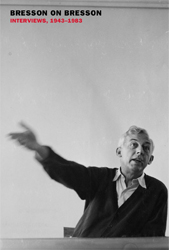
From Bresson on Bresson: Interviews, 1943-1983. Used with permission of New York Review Books. Copyright © 2013 by Flammarion, Paris. Translation copyright © 2016 by Anna Moschovakis.









